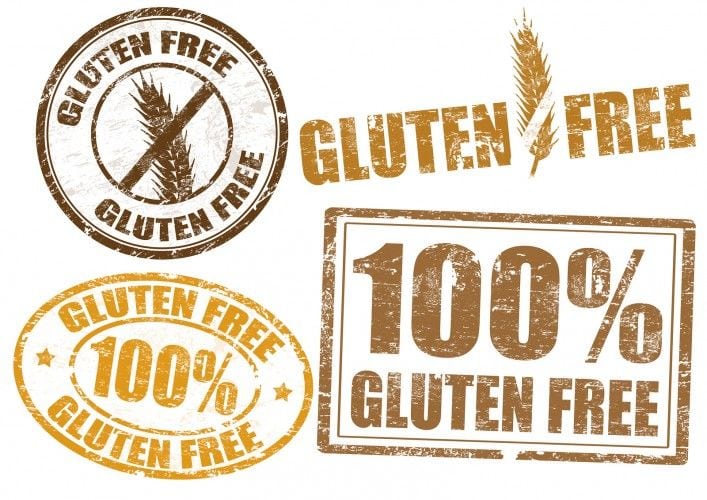Gluten, a protein in many diets, often sparks curiosity and concern. This article dives into gluten’s role in our diets and its impact on health.
Understanding Gluten
What is Gluten?
Gluten, a protein, is found in grains like wheat, barley, and rye. It’s key in bread-making, providing elasticity and texture. Understanding gluten’s role helps in making informed dietary choices, especially for those with sensitivities.
Sources of Gluten
Common sources include bread, pasta, and cereals. Gluten also hides in less obvious foods like soy sauce and some processed foods. Recognizing these sources is crucial, particularly for those with gluten intolerance or celiac disease.
“Fruits and vegetables are gifts from nature and the most natural way to heal your body and make yourself whole again.” – Gluten Free Traveller
Health Benefits of Gluten
Nutritional Value of Gluten
Gluten-containing grains are rich in nutrients. They offer fiber, vitamins, and minerals essential for a balanced diet. Including these grains can contribute to overall nutritional well-being.
Impact on Heart Health and Diabetes
Research links whole grains with gluten to heart health benefits. They also play a role in diabetes management. Including gluten in diets can contribute positively to these health aspects.
Interesting Facts About Gluten
- Gluten’s Historical Significance: Gluten has been a part of human diets for thousands of years. Ancient civilizations, like the Romans, were known to consume gluten-rich foods. They valued wheat for its versatility and used it in various dishes. The term ‘gluten’ itself was first used in the 19th century, derived from the Latin word for ‘glue’, reflecting its sticky properties.
- Gluten in Medication: Surprisingly, gluten is not just found in food. It’s also present in some medications and cosmetics. Gluten is used as a stabilizer or a filler in these products. This is a crucial consideration for people with celiac disease or gluten sensitivity, as they need to be aware of gluten in non-food items.
- Gluten and Fermentation: Gluten plays a significant role in the fermentation process of beer. Barley, which contains gluten, is a primary ingredient in most beers. The gluten proteins contribute to the beer’s body, foam stability, and mouthfeel. For those avoiding gluten, there are gluten-free beer options made from grains like sorghum, rice, or corn.

Gluten and Digestive Health
Gluten as a Prebiotic
Gluten can act as a prebiotic, feeding beneficial gut bacteria. This supports a healthy digestive system. A balanced intake of gluten can thus contribute to gut health.
Effects on Gut Microbiome
Gluten influences the gut microbiome, affecting conditions like IBS. Understanding its role in digestive health is key. A balanced gluten intake can maintain a healthy gut microbiome, crucial for overall health.
Gluten Sensitivity and Related Conditions
Celiac Disease vs. Non-Celiac Gluten Sensitivity
Celiac disease involves an immune reaction to gluten, leading to intestinal damage. Non-celiac gluten sensitivity shares similar symptoms but without the immune response. Understanding these differences is vital for appropriate dietary management.
Wheat Allergy
Wheat allergy, different from celiac disease, involves a reaction to wheat proteins. Symptoms range from itching to digestive discomfort. Recognizing and managing this allergy is important for affected individuals.
Cognitive Effects of Gluten
Gluten and Brain Health
Recent studies explore gluten’s impact on cognitive functions. Findings suggest no significant impact for those without gluten sensitivity. Understanding this relationship is important for making informed dietary decisions.
Myths vs. Facts
Common myths about gluten affecting cognitive health often lack scientific support. Research shows no significant cognitive impact for those without gluten sensitivity. Dispelling these myths is crucial for accurate understanding.

The Gluten-Free Diet
Challenges and Nutritional Considerations
Adopting a gluten-free diet requires careful planning to ensure nutritional balance. This is crucial to avoid deficiencies in essential nutrients like fiber and certain vitamins.
Gluten-Free Foods
Many foods are naturally gluten-free, including fruits, vegetables, and certain grains. These provide healthy alternatives to gluten-containing foods and help maintain a balanced diet.
Gluten-Free Diet for Non-Celiac Individuals
The popularity of gluten-free diets extends beyond those with gluten sensitivity. However, such diets are not inherently healthier and should be chosen based on individual health needs and preferences.
Myths and Misconceptions
Debunking Gluten Myths
Many myths about gluten lack scientific backing. Relying on research and evidence-based information is essential for accurate understanding and informed dietary choices.
Gluten-Free Diet Trends
The gluten-free trend has grown, but not always based on health needs. Understanding this trend is important for making informed dietary decisions, especially for those without gluten sensitivity.







